Human Interest
The quiet place is gone
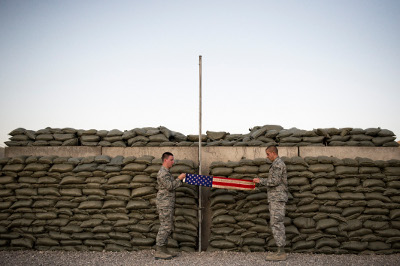
“The Quiet Place”—that was the nickname for west Afghanistan before the presence of an air control squadron showed up.
Detachment 1, 73rd Expeditionary Air Control Squadron, from Eglin Air Force Base, Fla., is only the second unit to setup shop here.
Before this site was here, there was no one for the planes to talk to, no command and control, and pilots would have to depend solely on their own instruments. (1st Lt. Bryan Hoffler, officer in charge and a native of Fayetteville, NC)
Walking around Camp Etchberger takes less than two minutes. It’s located on a base where English may rank third or fourth as a primary language, but the Airmen who call Etchberger home belong to one of the Air Force’s most hidden, unique, mission-critical squadrons.
We provide command and control in the sky. If there’s a “troops in contact” going on, (our) operators can pull up the air space, locate the closest aircraft and say “hey, we need you there.” In seconds, there’s aircraft on the way there to support the troops on the ground. Our radar gives the operators that capability.
We’re similar to AWACS, but we’re on the ground. We set up radar and radio sites in deployed locations, providing that long-range picture and communication.
Once that info is passed to operators at an air operations center, a clear sight picture is painted, allowing for communications between operators and pilots to be effective.
Light discipline is mandatory here at night. The only thing you may see is the light outlining the door of the “Green Monster”, the nickname given to the larger green bathroom trailer, or the light coming from the end of someone’s cigarette—you feel alone.
Then you walk inside any tent and see life. The morale, welfare and readiness tent is filled with Airmen playing Xbox together, Skyping with their loved ones or huddled around the TV, trying to get the cable to work. Step inside the gym tent, which has a whole six pieces of equipment, and you’ll find “Doc” (the individual medical technician) leading guys in a CrossFit session. Wake up early enough and watch the vehicle garage transform into a cardio room, as a handful of folks participate in the infamous “Insanity” workout via laptop computer and projector.
Putting on physical training gear and heading to the local base exchange for snacks or shaving cream isn’t an option here. BX and mail trips include strapping on body armor, loading a rifle and convoying outside the wire to a nearby camp.
As the trucks return from a supply run, Airmen come out of the woodwork to see if they have any mail. Mail day here resembles the front row of a Justin Bieber concert. As word spreads that mail is up, what looks like every Airman in camp is now huddled around one truck. Cheers and applause erupt as each piece of mail is claimed by its owner. Morale reaches new highs as packages from loved ones are passed out. Envelopes are grasped firmly as if life depended on it.
During the mail process, it’s evident that this is a community. Seldom would one person take an entire package for themselves. Whatever these men received was open for the taking. What’s mine is yours—that’s the common theme.
Etchberger has a feeling that’s reminiscent of the 1950s TV town of Mayberry. Everyone knows each other’s name and can have long, detailed conversations about any individual here as the population of the Airmen can barely fill a football team roster.
The Airmen’s primary mission is vital, but their non Air Force specialty code duties are just as important. The team of men do their job, keep the base running and defend their community.
With our site here, things are a little more unique than most Air Force deployments. Each Airman here has been trained by myself or my counterpart in air base defense since we have to protect ourselves and our equipment. (Master Sgt. Chris Cook, detachment first sergeant, head of security and native of Oak Harbor, WA)
Having to defend themselves is a very real scenario.
“So if there was an attack, who would pull security?” asked an Army sergeant during a laundry run.
“We would,” replied Master Sgt. Stephen Chambers, better known as “Doc.”
“But who would defend you guys?” asked the Soldier.
“Us,” said Doc, an Auburndale, Fla. native.
The area, which was once called “The Quiet Place,” is gone. The 73rd EACS is here, and will be keeping their eyes on the sky for a long time.
This article first appeared here at US Air Force Central.
Featured image: Airman 1st Class Arron Fairfax (left) and Senior Airman Ryan Adkins, Detachment 1, 73rd Expeditionary Air Control Squadron, fold the flag during the daily retreat ceremony at Camp Etchberger. Airmen at the camp perform reveille and retreat ceremonies everyday during their deployment.(U.S. Air Force Photo/Master Sgt. Jeffrey Allen)
-

 Executive4 days ago
Executive4 days agoSecret Service chief gets no solace
-

 Civilization5 days ago
Civilization5 days agoBiden drops out of race
-

 Executive2 days ago
Executive2 days agoWaste of the Day: Louisville Taxpayers Pay Nearly $600,000 For Empty Building’s Maintenance, Security
-

 Guest Columns4 days ago
Guest Columns4 days agoFear Itself: Democrats’ Favorite Strategy Caused Their Current Chaos
-

 Executive3 days ago
Executive3 days agoWhere is Joe Biden – or Jill?
-

 Executive1 day ago
Executive1 day agoWaste of the Day: Throwback Thursday: Cities Used Crime Prevention Funds on Soccer Games, Paper Shredding
-

 Civilization4 days ago
Civilization4 days agoBuild Iron Dome in the United States To Prepare for Israel’s Worst Day
-

 Executive2 days ago
Executive2 days agoFacile and politically motivated suggestions

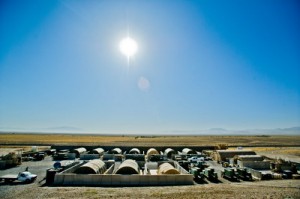

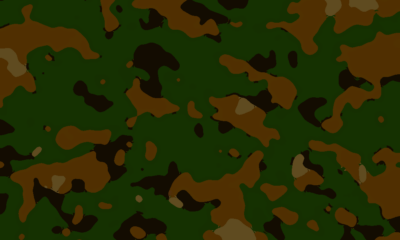

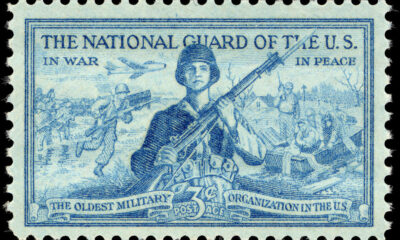



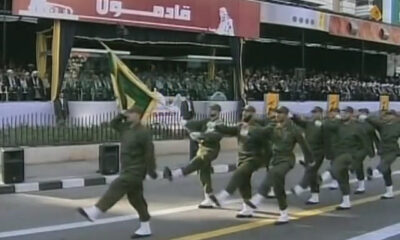



This is a good story, and thanks for sharing it. My only question is why Terry is the only name listed in the byline when the author of the article is someone else? That’s the person who should be credited.
Good catch. If you upload it again (after erasing the cache), you’ll see the correct author’s name.
Thanks. I’ve enjoyed his stories here, and look forward to more of them.
““The Quiet Place”—that was the nickname for west Afghanistan before the presence of an air control squadron showed up.
Detachment 1, 73rd Expeditionary Air Control Squadron, from Eglin Air Force Base, Fla., is only the second unit to setup shop here.”
That’s utter rubbish. ISAF have been deployed in western Afghanistan since early 2005. Western Afghanistan is Regional Command West and the lead nation is Italy. This detachment might be only the second unit to set up in THEIR CAMP, but that’s it; they’re a small unit in a large pre-existing command.
“Before this site was here, there was no one for the planes to talk to, no command and control, and pilots would have to depend solely on their own instruments. (1st Lt. Bryan Hoffler, officer in charge and a native of Fayetteville, NC)”
That’s utter rubbish too. Guess what the first thing the Italians did was? That’s right, set up an airbase at Herat. That airbase has a full set of control systems, which is fully integrated with the control centres at KAIA, Bagram, Mazar e Sharif and Kandahar. Herat Tower is responsible for aircraft control over RC West; this detachment is not.